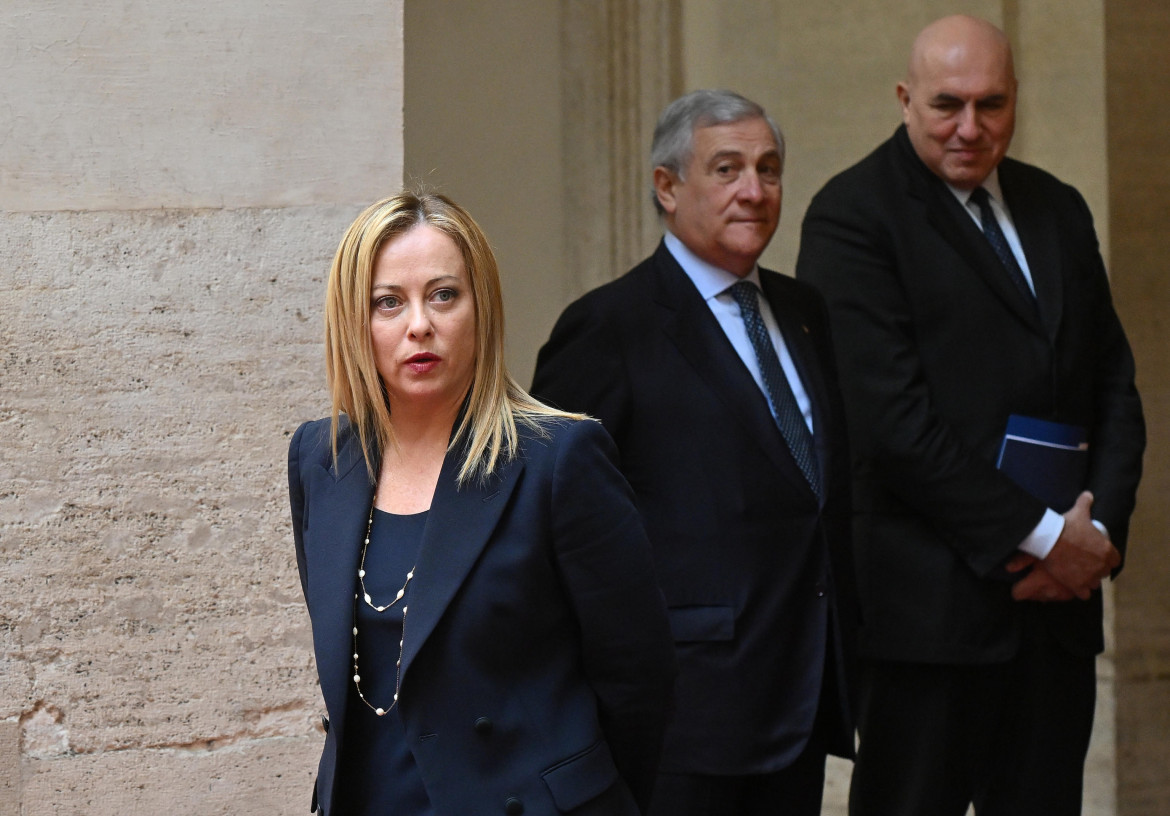Analysis
Italian government told Israel not to respond to Iran, but ‘it thinks it has to’
The crisis in the Middle East has brought a rare armistice between Meloni and Schlein. ‘As regards everything else, we remain opposed on every point,’ Schlein said.

Italy is ready for new sanctions against Iran, according to Foreign Minister Antonio Tajani. He added: “We hope that, buoyed by its military victory, Israel will let common sense prevail and desist from further responses.”
Before the joint parliamentary Foreign Commissions, the minister confirmed Italy’s commitment to de-escalation. On TV, his colleague Crosetto had already introduced themes from his speech: he said that the Iranian attack was “massive and violent,” and that without the help of the U.S., U.K. and France, “Israel probably would not have succeeded on its own.”
On the scenario for the coming days, the minister seemed optimistic: “All the countries have told Israel not to respond; however, it thinks it has to respond. But it will probably be more form than substance.” Looking further ahead, Crosetto is less reassuring: Israel, he says, cannot accept Iran having the atomic bomb.
For his part, the President urged the government “to play a role of stabilization and defense of the principles of international coexistence.” At least for now, both Meloni and Schlein are in agreement with Mattarella. The winds of war in the Middle East have brought, if not peace, at least a partial armistice in Rome. For once, Elly Schlein’s phone call to Giorgia Meloni was not merely symbolic; there was modicum of recognition and even mutual appreciation. So much so that it even left the door open to a possible joint resolution when the issue will come to the floor after Monday’s briefings by Tajani and Crosetto’s ministries before the House and Senate committees.
“At such a stage, it is natural that the majority and opposition should collaborate, but only on this point. As regards everything else, we remain opposed on every point,” Schlein said during a visit to Palazzo Grazioli, Silvio Berlusconi’s former Roman residence, now the headquarters of the Foreign Press.
Still, the point at issue is foreign policy at a time when the global crisis looms over everything – not exactly a minor detail. “There are matters on which it is inevitable that we talk and share the same positions and efforts,” the premier confirmed, while also reiterating that on every other issue, there is “an abyss” between the two sides.
Institutional responsibility does play some role in this, but so do the interests of the two leaders. The premier wants to be up against Schlein as her adversary, deeming her less dangerous in the media battle than Conte; accordingly, she is happy to lend her a hand in establishing herself as leader of the opposition. Schlein needs that helping hand, because she knows that Conte’s push will not stop with the European elections, but will become more and more biting. At the same time, while individual interests play a role, there’s more to it on this occasion. The two really agree on the need to lower the tensions – if that were possible – and on “de-escalation” and the ceasefire in Gaza, and both believe that this would be in Italy’s best interest. Behind the scenes, the PD secretary is keen to point out that it was Meloni who shifted towards her positions, and this is partly true; at the same time, while some credit can be given to the PD, much more credit is due to the Democratic Party in the U.S.: Meloni, as usual, has lined up behind Joe Biden, not the Italian Democrats.
However, in concrete terms, Italy can do very little in this situation and the Union as a whole is not in a much better position: the convening of the G7 says it all, decided directly by Biden without even consulting Italy, who holds the rotating presidency. In the past, especially in the days of the First Republic, things were different: the privileged relationship with Arab countries and with the Palestinian leadership, then in the hands of the PLO, allowed Italian diplomacy room for maneuver – something that no longer exists, or nearly so, now that Iran, the military groups aligned with it and Hamas are occupying the field.
Italy’s top concern is, obviously, internal security. On Monday morning, the National Committee for Order and Security met, convened and chaired by Minister Piantedosi. All agreed that the risk of external terrorist attacks appears limited. The threat comes from “lone wolves,” which is why border controls will be intensified, if only to look like one is doing something. The equating of illegal immigrant with lone wolf goes without saying.
Originally published at https://ilmanifesto.it/tajani-no-a-ulteriori-reazioni-possibile-risoluzione-bipartisan on 2024-04-16
